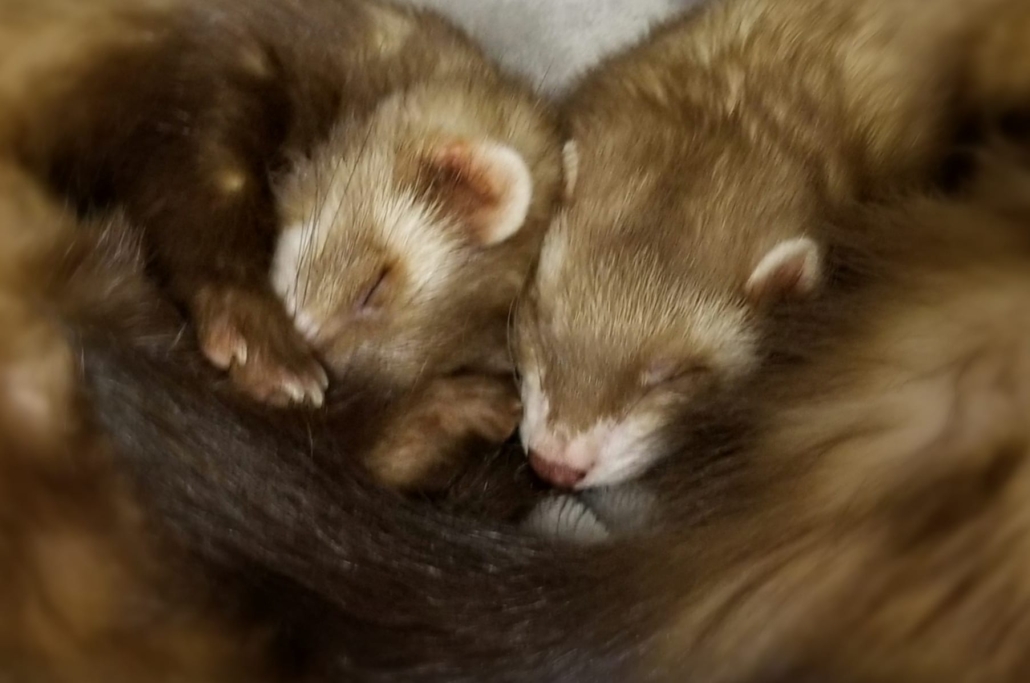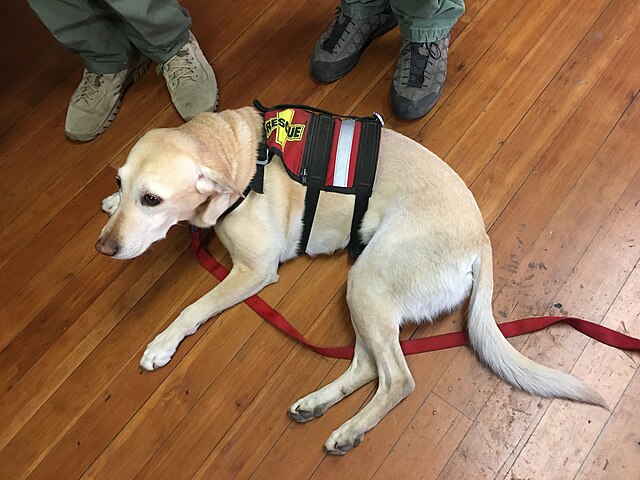A few years ago, I decided to get a high-tech watch. It had a bunch of health features, including some way to monitor emotions, especially excitement and stress. If I laughed too hard, it would buzz at me. Bzzzt bzzzt! And then it would ask, “How are you feeling?” When dealing with something stressful at work: bzzzt bzzzt! When playing Beat Saber: bzzzt bzzzt!
Each time, it wanted me to select from a list of options for how I was feeling. Over time, it became pretty attuned to me. It also offered recommendations such as take a break and remember to breathe.
One day, a particularly exciting thing came up. Kevin and I had been talking about getting a third ferret — perhaps a baby or perhaps a rescue. Then we learned that one of Sophie’s littermates – Lily – had to be given up by her owner. Lily ended up in a shelter for about 4 months (where she escaped twice), and then back at the breeder’s house (where Lily managed to get up into the ceiling at least once). We were given the opportunity to adopt her if we were willing to make the 14-hour drive.
No problem!
I was talking with my dad about this, and he marveled that we would make such a drive. He should know me well enough by now, but I shrugged that off. Then he was trying to say we should wait to go get her. I reassured him that we were waiting. There was a blizzard, so we couldn’t go yet. However, we would have a window of time between blizzards where we could travel down, scoop her up and get back home before the next one hit.
“No, ” he said, “I think you should wait a couple months, until spring.”
“Bzzzt bzzzt!” said my watch. “How are you feeling?”
“We can’t just leave her in limbo for months,” I explained. That thought alone was distressing.
“Breathe” said my watch. I inhaled deeply.
The ferret won’t know the difference, my dad explained.
“Take a break,” said my watch.
“Dad, I gotta go,” I said, and then continued packing. For the record, we made the trip just fine.
Eventually, I stopped wearing that watch. With each app update, it became increasingly less functional. However, I did wear it long enough to become aware of stressors, even those I thought I was handling without problem. Outward stoicism doesn’t always translate to internal calm. I also learned to breathe, take breaks, and maybe just don’t tell anyone when I’m planning to do something extra adventurous.

Sophie and Lily July 2023

